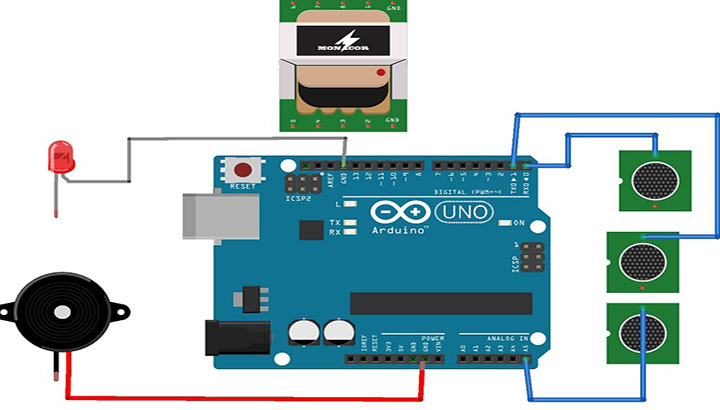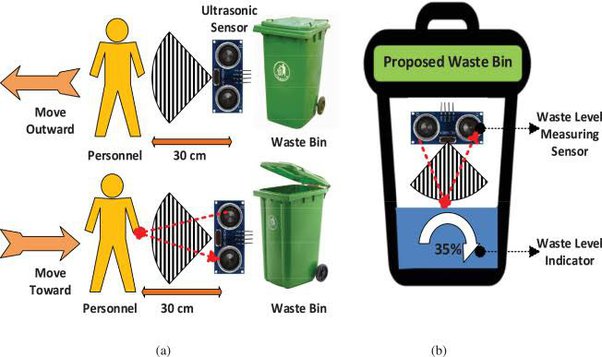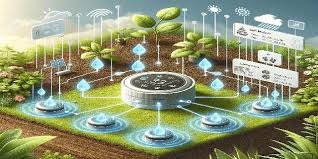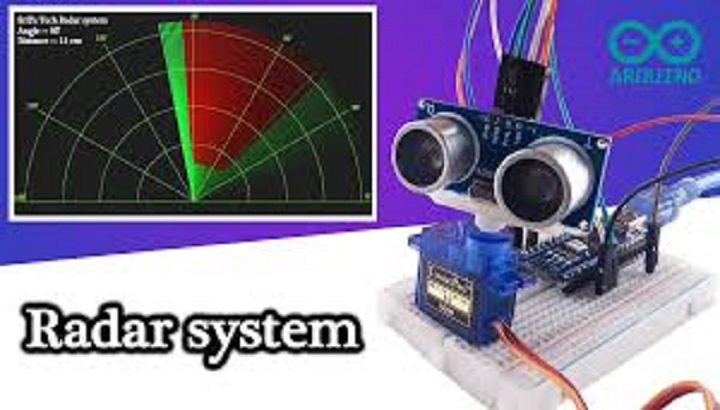Conveyor Belt Control System with ESP8266 and Servo Motor for Item Sorting
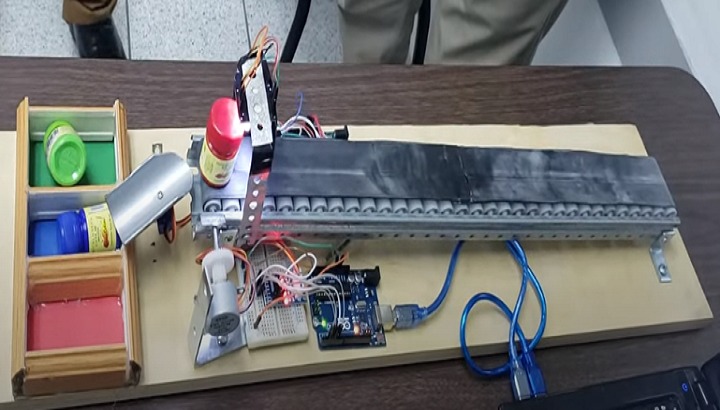
The primary objective is to enhance operational efficiency, reduce manual intervention, and enable seamless integration with IoT-based systems. The system employs an ESP8266 microcontroller to manage the conveyor belt's movement, speed, and direction. Sensors are integrated to detect the presence and type of objects on the belt, measuring their speed and ensuring proper alignment. A servo motor is used to sort items into different bins based on predefined criteria, such as size, color, or type.
The sorting process can be demonstrated effectively by separating objects of different colors using a color sensor. For instance, the system can separate red and blue objects into two different bins. The color sensor detects the color of each item as it moves along the conveyor belt, and the servo motor then directs the item to the appropriate bin.
Collected data is transmitted wirelessly to a cloud server, allowing for real-time analysis and control. A mobile application or web interface enables users to start, stop, and control the conveyor belt remotely, displaying real-time data on the belt's status, such as speed, item count, and sorting performance. Alerts and notifications can be configured to inform users of any issues or required maintenance, ensuring timely intervention and minimizing downtime.
The ESP8266-based conveyor belt control and sorting system offers a cost-effective and scalable solution for industrial automation. It improves operational efficiency, enhances safety, and provides valuable data insights for optimizing conveyor belt performance. This project demonstrates the potential of IoT technologies in transforming traditional manufacturing and material handling processes.
Related project idea for free
Smart Noise Control System for Educational and Office Environments
Noise pollution is a significant yet often overlooked environmental issue, impacting millions of people daily. Common health problems resulting from noise pollution include hearing loss, high blood pressure, heart diseases, sleep disturbances, stress, and headaches. The challenge in mitigating no...
Read more>>Smart Dustbin for Clean City IOT Based Project
In the modern era of smart technology, efficient waste management is a significant concern, particularly in urban areas. This project introduces an innovative smart dustbin system designed to enhance hygiene, convenience, and efficiency in waste disposal. The core of the system is an ESP8266 micr...
Read more>>Smart Urban Gardening System
Urban gardening has become increasingly popular as city dwellers seek to grow their own food and green their living spaces. However, managing an urban garden efficiently can be challenging due to space constraints and the need for continuous monitoring and care. The Smart Urban Gardening System a...
Read more>>Smart Truck Bed Cover System with ESP8266 Integration
The Smart Truck Bed Cover System integrates ESP8266 technology with various components to create an automated and responsive solution for truck bed covers. This project utilizes a servo motor, buzzer, LED indicators, tent cover, and rain sensor to enhance usability, protection, and convenience for t...
Read more>>Arduino-Powered Proximity Sensing Radar
This project aims to develop a simple radar system using Arduino, incorporating a variety of electronic components including an ultrasonic sensor, buzzer, LED, LCD display, and a servo motor. The primary objective is to detect objects within a defined range and provide visual and auditory alerts. <...
Read more>>
